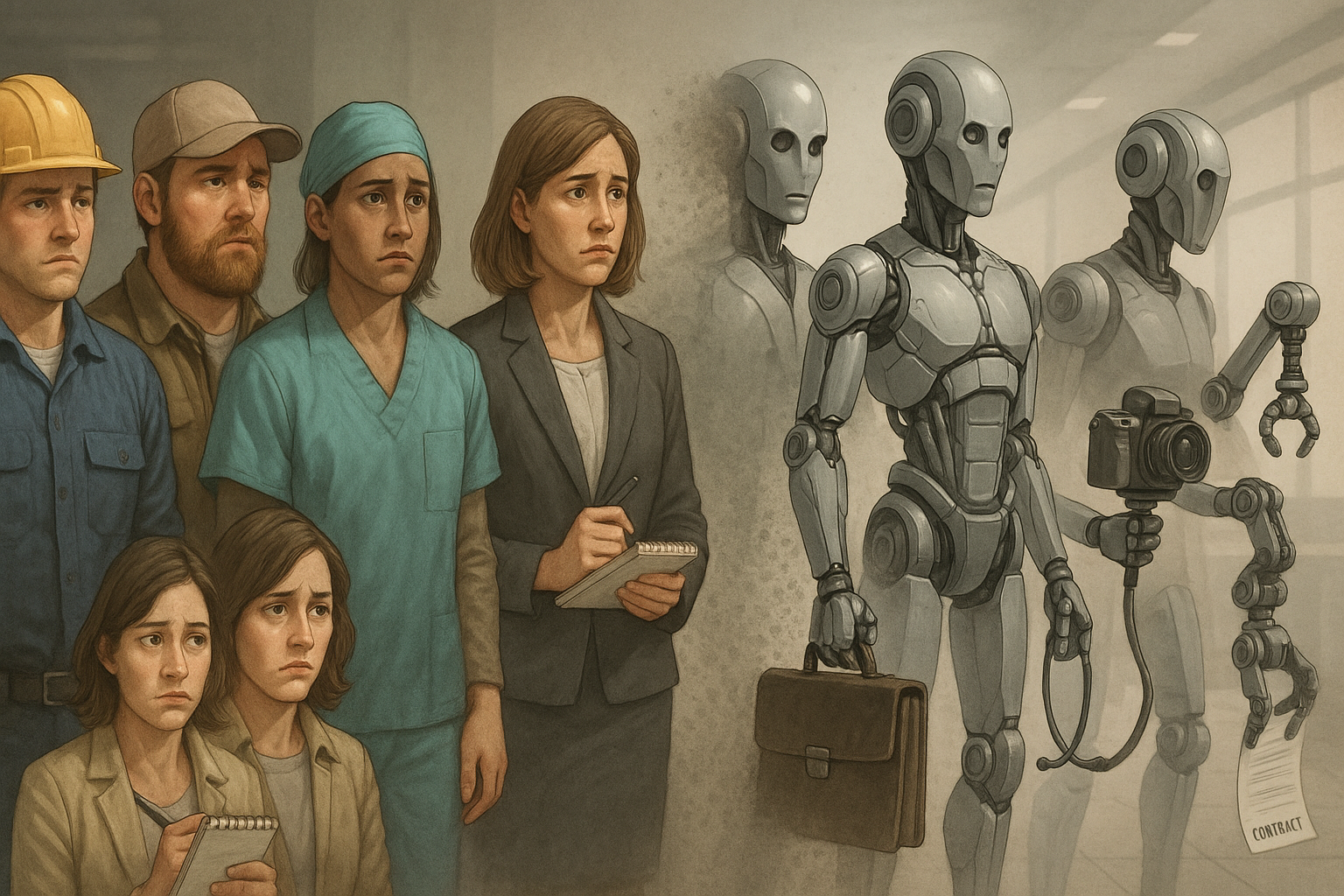A new Senate Democratic report landed with a thud this week, warning that artificial intelligence could potentially eliminate—brace yourself—up to 100 million American jobs. That's roughly a third of the entire U.S. workforce, folks.
And we're not just talking about factory workers or truck drivers. The report suggests lawyers, doctors, and yes, even journalists like me might find ourselves competing with silicon-based rivals. (Though I'd argue my coffee addiction alone produces writing that no algorithm could possibly replicate.)
Look, we've heard this song before, haven't we? Every technological revolution arrives with a chorus of doomsayers predicting the end of employment as we know it. Remember the great ATM panic? Banks were supposedly going to slash teller positions—instead they opened more branches and employment actually went up.
I've covered technological disruption since the early dot-com days, and what I've consistently observed is something I call the "technological displacement paradox." New technologies obliterate specific tasks while simultaneously birthing entire categories of previously inconceivable work. Your great-grandparents couldn't have imagined being a "cloud solutions architect" or "cryptocurrency compliance officer" because... well, what the hell would those words even mean to them?
The problem with the Senate report's eye-popping 100 million figure is that it's essentially a one-sided ledger—all outflow, no inflow. It counts jobs displaced without accounting for jobs created. That's like me telling my wife I spent $3,000 last month without mentioning I also earned $5,000.
Not a recipe for marital harmony, I assure you.
The evidence is everywhere that AI is already reshaping work. Last month, I interviewed three law firms implementing GPT-4 to draft standard contracts. A photographer friend showed me a magazine cover created using Midjourney—and frankly, it was stunning.
So yes, change is coming. But history suggests something more nuanced than "robots eat all the jobs."
The more interesting question—and one the Senate report doesn't fully grapple with—is who benefits from the AI revolution? Previous technological upheavals eventually lifted living standards, but often created decades of painful transitions. Just ask the 19th century weavers who found their looms replaced by automated factories.
The real risk isn't joblessness; it's maldistribution.
When ATMs transformed banking, the sector grew, but an increasing share of revenue flowed to shareholders rather than workers. Economists call this "declining labor share of income," which is a fancy way of saying, "the machines made everybody more productive, but the owners of the machines pocketed most of the gains."
Now, if you've read this far, you might be thinking, "So what's the solution?" (I know I am.)
The Senate report correctly suggests we need policies to manage this transition. But rather than futilely trying to prevent technological change, we should focus on ensuring its benefits are widely distributed. This might require reimagining education, labor market policies, and—I can already hear the groans from certain quarters—possibly even more radical approaches like universal basic income or digital dividends.
I spoke with three economists after the report's release, and all emphasized the same point: the future probably isn't mass unemployment; it's potentially deeper inequality unless we make deliberate policy choices otherwise.
Which, given our current political climate...
Well. Let's just say I'm not holding my breath.
